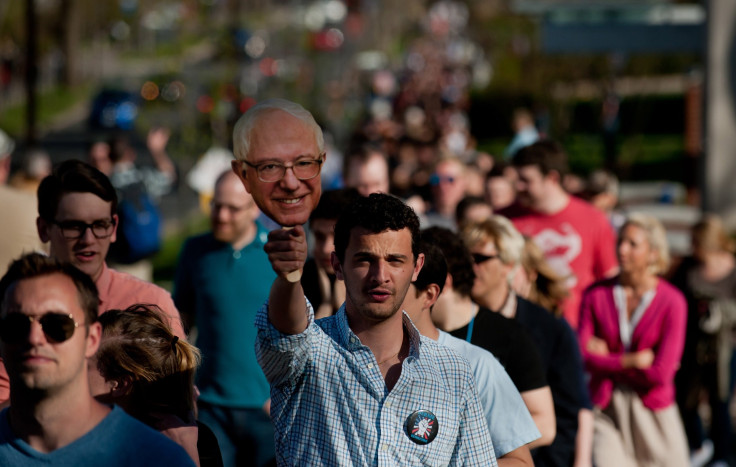Young Voters Dislike Donald Trump, Could Support Hillary Clinton In November, Harvard Poll Finds

At the same time young voters are feeling the Bern, they're also rejecting Donald Trump. The leading GOP presidential candidate was seen as unfavorable by 74 percent of 18- to 29-year-olds polled in a survey released Monday by the Institute of Politics at Harvard University. And that, combined with the fact that more millennials are identifying as Democratic instead of independent for the first time in five years, indicates the youth vote in November could be anti-Trump.
"I do think that Donald Trump is doing as much for the prospect of the Democratic nominee as George W. Bush did in 2008," polling director John Della Volpe said on a conference call with reporters Monday, referencing a surge in youth engagement that propelled then-Illinois Sen. Barack Obama to the presidency years ago. "I don't think there's a question about that."
To be fair, young voters generally don't love Democratic front-runner Hillary Clinton, either. She had a net favorable rating of minus 16 percentage points in the Harvard poll. Only Vermont Sen. Bernie Sanders inspired good feelings among millennials, with a 23 percent net favorable rating.
But the percentage of youth who prefer a Democrat to win the White House come November has grown over the past year. If it were to come down to Clinton and Trump, the two party front-runners, about 61 percent of likely voters would cast ballots for the former first lady, according to the survey. About 25 percent of the poll's respondents would support billionaire Trump, and 14 percent were undecided.
The takeaway? "Clinton seems to be doing a fair job coalescing young Democrats, while Donald Trump has had trouble coalescing young people on the right," Della Volpe said.
Still, Clinton faces well-documented hurdles getting the backing of millennials over the next few months: Even among the people who said they'd vote for her, 40 percent weren't enthusiastic about Clinton as a candidate.
If she's trying to curry favor with young people, the former secretary of state might want to avoid using labels. The Harvard poll found that millennials, as a group, reject titles like "socialist," "social justice activist," "capitalist" and "feminist" even when they support the ideals behind them.
Despite this, the poll results show young people "care deeply about their futures, and in this election cycle they are laser-focused on issues like access to educational opportunity, women’s equality and the economy,” the Harvard institute's director, Maggie Williams, said in a news release. She added they also have a "growing awareness that their voices have power.”
The Harvard poll included responses from more than 3,000 young Americans between March 18 and April 3. The margin of error was plus or minus 2.4 percentage points.
© Copyright IBTimes 2024. All rights reserved.






















